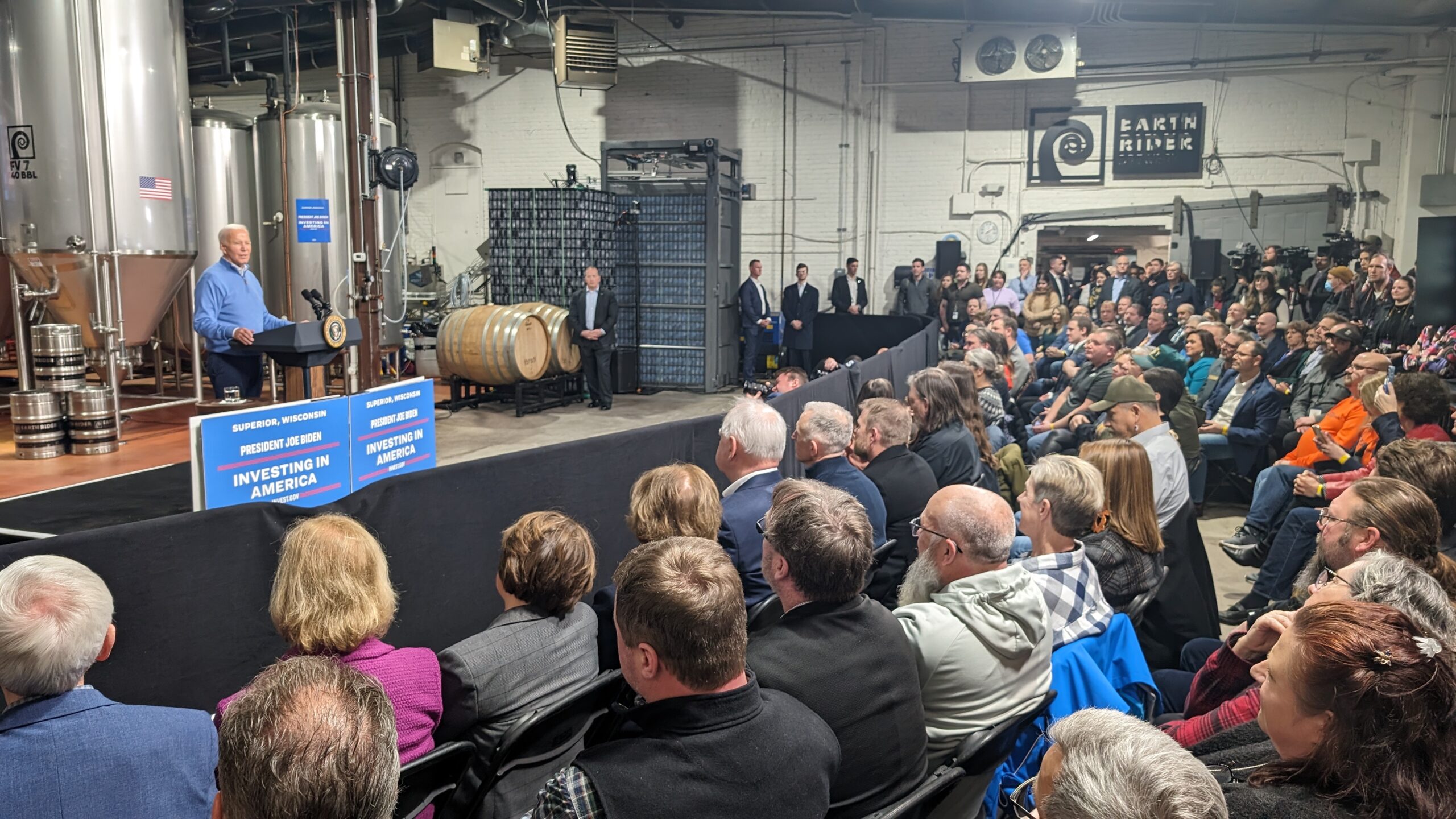
In March 2022, when President Joe Biden visited the Twin Ports after his first State of the Union address, I issued a challenge. As he stood in the shadow of the Blatnik Bridge campaigning for deep investments in America’s failing infrastructure, I stated that a true commitment to environmental and economic justice required human-scale investments, not just large transportation projects that are often a burden to environmental-justice communities.
Now — with Biden’s return to announce a billion-dollar federal award for the Blatnik Bridge replacement, a much-needed investment for the port and safe interstate travel — seems an appropriate time to reflect on whether the administration has met its broader environmental-justice commitments.
The answer is yes.
Less than two years ago, we set out examples of what human-scale investment to address existing disparities would look like in Duluth’s Lincoln Park neighborhood: rebuilding our main street into an active transportation corridor to address mobility needs with funding from the U.S. Department of Transportation, building a small-footprint grocery to tackle food insecurity with funding from the U.S. Department of Agriculture, and advancing healthy and efficient housing with funding from the U.S. Departments of Energy and Housing and Urban Development. Not only has the federal government invested in each of these, the Bipartisan Infrastructure Law and the Inflation Reduction Act are proving to be transformational in ways we could not imagine even just 22 months ago.
The synergy of federal DOT funding for the rebuild of West Superior Street and community geothermal planning funds from the Department of Energy are resulting in the analysis and design of a first-in-the-nation renewable heating district that captures waste heat from the wastewater treatment plant. Lincoln Park and downtown Duluth housing and commercial buildings could have a sustainable heating solution that is less affected by the swings of fossil-based energy prices.
Leaders representing Minnesota and Wisconsin spoke during President Biden’s visit to the Twin Ports, including Governors Evers and Walz, as well as Senators Baldwin, Klobuchar, and Smith.
Later this year, Minnesota will be releasing two rebate programs made possible by federal Department of Energy funding to provide up to $14,000 per home to increase energy efficiency and the health of our old housing stock. Through the Energy-supported American-Made Buildings Upgrade Prize and U.S. Environmental Protection Agency environmental-justice funding, the federal government is investing in the energy navigators, workforce training, and technology needed to ensure our community can benefit from the more than $150 million available in the state.
A grant from the Corporation for National and Community Service has supported planning for a new direct-service AmeriCorps program. In April, we expect to hear about funding for an Energy Training Corps that could serve as a national model for Biden’s proposed 20,000-member Climate Corps. It would expand pathways into the trades and provide an energy-retrofit workforce solution in both urban and rural settings while optimizing energy-efficiency investments.
Even programs set up under Biden’s Justice40 Initiative that did not provide funds to our local community have extensive impact potential. Technical assistance through the Department of Energy’s Communities Local Energy Action Plan (C-LEAP) program resulted in the modeling of all commercial and residential properties in Duluth to establish the best investments to save money and carbon as buildings are upgraded.
This knowledge can be applied regionally and inform Minnesota’s approaches to the EPA’s Climate Pollution Reduction Fund implementation funding application due in April.
In addition, research supported through C-LEAP on industrial decarbonization may result in hundreds of millions of dollars of public and private investment in northern Minnesota toward green iron and steel production.
It is the policy environment, tax credits, grants, loans, technical assistance, and intentional focus on supporting American industry that could reset the economy of our region for the next 100 years. Research indicates our region is a key place in America where it is technically and economically feasible to address industrial carbon emissions. This can expand economic opportunities for our port, our city, and the Iron Range.
A renewable-energy heating district, job and training pathways resulting in an efficient and electrified housing stock, sustainability resources for businesses, and taking the carbon emissions out of steel, fertilizer, fuels, and concrete are all possible through strong partnerships in Northeastern Minnesota. What we need is continued federal leadership and the implementation funding to turn plans into reality.
We are excited about the Blatnik Bridge announcement, but let’s keep going, Mr. President!
This is a reprint from the Local View in the Duluth News Tribune, printed Thursday January 25, 2024.